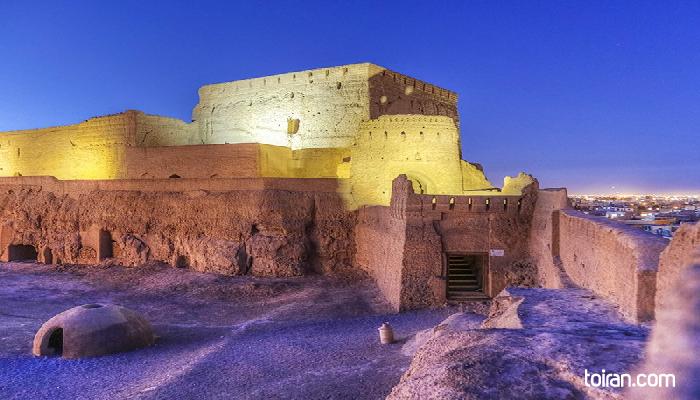Meybod in Yazd Province is a desert city with an ancient past. The city, which resembles Yazd city in many aspects, is considered to be much older than the city of wind towers with a history of over 7,000 years.
The city borders Yazd city in the southeast, Aqda foothills in the west, Ashkezar in the south and Ardakan in the north. Meybod’s proximity to Dasht-e Kavir has bestowed desert climate on the city and as a result it experiences extremely hot summers and cold winters with mild springs and falls.
Some believe the city was founded by Meybodar, a Sassanid (226-651 CE) commander, who named the city after himself and others say the city was founded by Keyumars, the First Man in Avestan accounts and the first of the Pishdadi Kings in Ferdowsi’s Shahnameh (Book of Kings). Pishdadian are considered the first Aryan dynasty in Persian mythology.
The Meybod-minted Sassanid coins found in excavations in different parts of Iran suggest the city was an important center towards the end of the Sassanid era as only a handful of the 111 known Sassanid cities were able to mint coins.
Meybod is rich in historical sites that are scattered in and around the city such as the stone mill, Kelar Ab-Anbar (cistern), Ice House and pigeon tower (dovecote).
Narin Castle (Narein Castle) is one of the major attractions of the city. This mud brick Parthian (247 BC–224 CE) structure, which has been built in five stories on a hill overlooking Meybod, was used as a military fortress for most of its life but there are expert who say that the castle was originally an Elamite Ziggurat (temple) built over 4,000 years ago.
Meybod is famed for its ceramics and countless shops throughout the city sell these fine Persian creations.









